by Rebecca Edwards
In Waco for Spring Break? You are in luck! There are some wonderful ways you can have some creative fun with your family – no matter what age they are! Here is my personal top 10 list. What would be on yours?
#10 The Dr. Pepper Museum with its Wild West Exhibit – Aside from all the history of Dr. Pepper, there is a great homage to the cowboys and cowgirls that have helped market the soda. Sweet treats in the oldfashioned soda fountain, too. On March 7th, the DPM begins its “summer” hours, meaning it’s open on Monday to Saturday 10am to 5pm and Sunday 12pm to 5pm. Admission is $8 for adults, $5 for students, Seniors & Military $7
#9 Cameron Park Zoo – (Be sure to take advantage of the zoo shuttle – the parking lot fills up quickly.) On Sunday, March 13th, 11am to 2pm, the zoo will host “Spring Forward for Amphibians” with special activities. But the rest of the week will be wonderful to walk the grounds and gaze at our animals living right here in the city! Playgrounds and the gift shop offer the weary some rest. The Zoo is open Monday through Saturday 9 am to 5 pm and Sunday 11 am to 5 pm. Admission is $10 for Adults, $7 for children 412 years old, $9 for Seniors (Children 3 and under are free and Military discounts are offered).
 #8 Art Center Waco: GS DeFoore Exhibit, Cookies & Coloring, sculpture trail AND Spring Break Pottery Class – Okay, the Art Center is one of my favorite gems of Waco. Above Cameron Park and the river, the views are spectacular, the grounds (with walkable sculpture trail) are inspiring, and the gallery space is inviting and peaceful. Aside from the permanent structure of the Art Center itself, the goingson inside are also enticing. The GS DeFoore Exhibit just opened and will be up through May 27th. On Wednesday, March 9th, Doreen Plott of Mammoth Creek Pottery will be hosting a pottery class from 9am to noon. (Limited to 10, Registration $50). And on Friday, March 11th, free Cookies & Coloring will be back from 3pm to 5pm to explore the work of Jackson Pollock and eat cookies! What’s not to love??? The Art Center is open Tuesday through Saturday 10am to 5pm. Admission is FREE!!
#8 Art Center Waco: GS DeFoore Exhibit, Cookies & Coloring, sculpture trail AND Spring Break Pottery Class – Okay, the Art Center is one of my favorite gems of Waco. Above Cameron Park and the river, the views are spectacular, the grounds (with walkable sculpture trail) are inspiring, and the gallery space is inviting and peaceful. Aside from the permanent structure of the Art Center itself, the goingson inside are also enticing. The GS DeFoore Exhibit just opened and will be up through May 27th. On Wednesday, March 9th, Doreen Plott of Mammoth Creek Pottery will be hosting a pottery class from 9am to noon. (Limited to 10, Registration $50). And on Friday, March 11th, free Cookies & Coloring will be back from 3pm to 5pm to explore the work of Jackson Pollock and eat cookies! What’s not to love??? The Art Center is open Tuesday through Saturday 10am to 5pm. Admission is FREE!!
#7 Magnolia Silos and Food Trucks – In case you didn’t know, there’s a little HGTV show that has made Waco a destination city. And Magnolia Market at the Silos is its base camp! I like the store and all, but the “park” like feel of the grounds and the beauty of community are what have drawn me to the silos. The food trucks (looking at you, Luna Juice Bar and Club Sandwich) are a great excuse to drop by and have lunch while the kids run and tumble on the astroturf lawn with its old fashioned games. The store and grounds are open Monday to Thursday 10am to 6pm and Friday & Saturday 9am to 6pm. Closed Sunday. Admission is FREE!!
#6 Armstrong Browning Library at Baylor University – This grand library may be an odd suggestion for children on Spring Break, but the current exhibition of the library’s collection of children’s literature is worth checking out. The building itself is a masterpiece of architecture, and the grounds around Baylor are perfect for strolling, biking, or scootering. The library is open Monday through Friday, 9am to 5pm, and on Saturday 10am to 2pm. Admission is FREE!!
#5 THE Waco Hippodrome – If you haven’t checked out the beautiful renovations done to our Grand Old Dame, the Hippodrome is worth a visit. Offering firstrun movies, delightful old favorites, and a delicious menu (you can eat WHILE watching a movie), it should be pretty high on your list. Especially with the free concert coming up on March 7th at 7pm: The Air Force Celtic Band! Advanced tickets are available on the website—for FREE. (Did I mention this concert is free?) The Hippodrome offers lunch Monday through Friday 11am to 2pm, and the kitchen & bar are open Monday through Friday beginning at 5pm and Saturday and Sunday, beginning at 11am (for awesome brunch!). Admission for most movies and showtimes is $5, First run movies in the evening are $8.
#4 Mayborn Museum at Baylor University – Every. Single. Day. The Mayborn has special Spring Break activities planned in the Bill & Vera Daniel Historical Village every single day of the week. Monday is Chore Day, Tuesday is Grinding Day, Wednesday is Planting Day, Thursday is Candle Making, and Friday is Game Day! These activities are only from 1pm to 3pm in the village, with some days featuring a horsedrawn carriage or animals in the village. But if you miss that, don’t worry. The Mr. Potato Head & Tinker Toy exhibit are also worth the visit! Not to mention the chance to see DisneyPixar’s Toy Story in the museum theater at 11am and 3pm every day. AND Mr. Potato Head himself will make an appearance every day at 10:30 and 2:30. Aside from the traveling exhibits and special events, the regular exhibits are what keep our family members to this treasure of a museum. We like to feel small next to the mammoth skull and giant turtle skeleton in the Strecker wing. We like to explore the wonders of light and water and magnetism in the discovery rooms. And the museum store is a favorite spot to spend allowance money! The Mayborn is open from 10am to 5pm Monday through Saturday, with extended hours on Thursdays until 8pm. Open Sunday from 1pm to 5pm. Admission to the traveling exhibit includes regular admission Adults: $10.00, Children(18 months to 12 years of age): $5.00 Seniors (65 years and older): $9.00.
#3 The WacoMcLennan Public Library’s Spring Break Programming – From the time my oldest was a toddler, we have been taking advantage of the FREE programming at the Waco Library. Toddler time, Preschool Storytime, Summer showcases, special interest clubs. There is something for every age child. In fact, there are just too many to list here. Check out the library website for details about the Zooniversity visiting the South Waco Library or the Board Game club at the West Waco Library or the Family Kite Worksop at Central Library (preregister for that one!). And the regular programming isn’t letting up just because it is Spring Break! Toddler Time and Story Time are still happening! Plus, Books! Movies! Audiobooks! Free Wifi and computer use! Get a library card because it will take you places without having to actually travel. I am a HUGE fan. The Libraries are open most days from 10am to 6pm, with each branch having extended hours on certain days. Admission AND Library Cards are FREE!!!
#2 Sightseeing WacoTown’s Public Art – Waco is changing! It is becoming a place of vibrant art and culture—if it hasn’t always been, the cocoon is cracking. I want to encourage anyone to walk or bike along the Suspension Bridge and marvel at the Branding the Brazos sculptures that capture the scenes of the first crossings of our famous bridge. Find the Freedom Fountain at the Waco Convention Center and try to read the word “FREEDOM” in all the languages that surround it. Find our “You look Nice today, WacoTown” mural at 7th & Washington. Seek out our art. Support our artists at galleries like the Art Center of Waco, Anthem Studios, Art Forum, Martin Museum of Art, and Studio Gallery. See what artists have been doing in our city and celebrate! Go to the public art outside ANYTIME. For the art galleries, check their hours. Admission is FREE!!!
And the NUMBER ONE event in Waco during Spring Break is….
#1 FIRST FRIDAY!!! – Okay, so it doesn’t last all week, but it does start on the very first evening of Spring Break: Friday, March 4th! And the event is all over and really all afternoon and into the evening. Something for everyone and a chance (excuse?) to check out new places in town, like the Findery. Or maybe not even new ones—what about spots that have been around but there’s never been a chance to see what they are all about? Use this First Friday as a ticket to explore what downtown has to offer! Different venues have different hours. Admission is FREE!!!
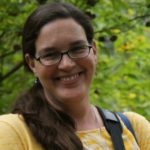 Rebecca Edwards grew up in West Texas and has lived in Waco for the better part of 24 years. After graduating from Baylor, she married Joel and they have three children. After careers in banking and travel, her titles now include Wife, Mother, Substitute Teacher, Photographer, Arts Enthusiast, and Craft Dabbler.
Rebecca Edwards grew up in West Texas and has lived in Waco for the better part of 24 years. After graduating from Baylor, she married Joel and they have three children. After careers in banking and travel, her titles now include Wife, Mother, Substitute Teacher, Photographer, Arts Enthusiast, and Craft Dabbler.
The Act Locally Waco blog publishes posts with a connection to these aspirations for Waco. If you are interested in writing for the Act Locally Waco Blog, please email [email protected] for more information.
by Kayla Zollinger
Many people think of Communities In Schools of the Heart of Texas as a school based program where our staff are positioned at campuses throughout the Heart of Texas serving K-12. What many people do not realize is that CIS-HOT also serves youth and young adults who are often referred to as “opportunity youth.” Opportunity youth are typically defined as individuals 16-24 year-olds that are not working or in school. In partnership with Workforce Solutions for the Heart of Texas, CIS-HOT aims to connect with opportunity youth and work with them to achieve their education and employment goals.
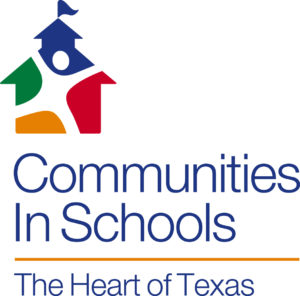 One of the opportunities offered to our 16-24 year olds participants is a Subsidized Work Experience. Through this experience, CIS-HOT hires youth, provides them with new-hire training, and places them in the community at a host-worksite. These host-worksites provide the youth with a job description, daily tasks, and supervise them for 15-20 hours per week for about ten weeks, or up to 300 hours. Youth participating in the Paid Work Experience Program receive an hourly wage paid by CIS-HOT as well as support from an individual Career Coach. Each Career Coach meets with the host employer and participant weekly to discuss the participant’s performance in order to highlight strengths and identify areas of growth to prepare them for future employment success.
One of the opportunities offered to our 16-24 year olds participants is a Subsidized Work Experience. Through this experience, CIS-HOT hires youth, provides them with new-hire training, and places them in the community at a host-worksite. These host-worksites provide the youth with a job description, daily tasks, and supervise them for 15-20 hours per week for about ten weeks, or up to 300 hours. Youth participating in the Paid Work Experience Program receive an hourly wage paid by CIS-HOT as well as support from an individual Career Coach. Each Career Coach meets with the host employer and participant weekly to discuss the participant’s performance in order to highlight strengths and identify areas of growth to prepare them for future employment success.
At CIS-HOT we find that so many of the youth entering our program have a strong desire to work, and want to learn to be reliable employees, but they often need the support of a caring adult to encourage and guide the learning of soft-skills. These youth and young adults are often juggling multiple responsibilities like working toward a GED, attending credit recovery classes, parenting, searching for employment, and even probation. This program offers them the opportunity to attend class, gain job skills, and earn a wage while being surrounded with the CIS-HOT community of support.
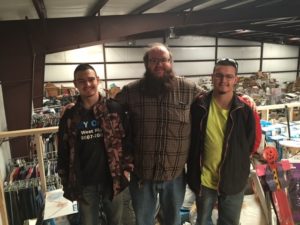 Through this program, we have seen numerous changes in our participants including higher self-esteem, more confidence, greater communication, increased punctuality, and improved initiative. Our team has found that this opportunity to learn, work, and earn a wage has kick-started the participants’ intrinsic drive to be successful. Many participants have now moved on to new permanent employment opportunities, using the work experience as an important resume item, and several have enrolled in post-secondary education. We have seen the work experience ignite confidence in youth and young adults and awaken the realization that their goals are within reach.
Through this program, we have seen numerous changes in our participants including higher self-esteem, more confidence, greater communication, increased punctuality, and improved initiative. Our team has found that this opportunity to learn, work, and earn a wage has kick-started the participants’ intrinsic drive to be successful. Many participants have now moved on to new permanent employment opportunities, using the work experience as an important resume item, and several have enrolled in post-secondary education. We have seen the work experience ignite confidence in youth and young adults and awaken the realization that their goals are within reach.
One of the most integral components of the Paid Work Experience Program at CIS-HOT is the support and investment in the lives of the youth participants by our host employers. Our host employers act as the main supervisors for the youth participants throughout their Work Experience. On a daily basis, these host employers offer professional advice to our participants, and thus doing, contribute to the successful future of these participants. Host employers can be from the public, private, or non-profit business sectors and have the opportunity to hire participants for any open positions following the completion of the Work Experience. Recently, we asked some of our host employers what they would say to other employers in the community about participating as a worksite and here is what they said:
“It is a great experience not only for the student, but also for the employer!”
“I’d say, ‘Do it!’ This program is fantastic for both the student and the employer. To be the first example and somewhat shape and improve a child’s future is an awesome feeling! Both participants walk away feeling accomplished. It’s a Win-Win situation!”
“The CIS Staff is great to work with, and very knowledgeable in what they are doing. The applicants they send us are wanting to change their circumstances.”
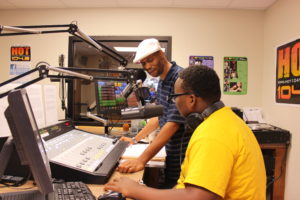 CIS-HOT is so thankful for the numerous employers who are currently hosting participants and who have acted as hosts in the past! You are truly valued and your investment in our youth and young adults will impact them for years to come!
CIS-HOT is so thankful for the numerous employers who are currently hosting participants and who have acted as hosts in the past! You are truly valued and your investment in our youth and young adults will impact them for years to come!
If you are interested in serving as a host employer for the Communities In Schools of the Heart of Texas Work Experience Program or if you would like to recommend a young adult to the program, please contact Kayla Zollinger.
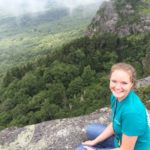 Kayla Zollinger is the Field Coordinator for the Workforce Innovation and Opportunity Act Program at Communities In Schools of the Heart of Texas. A resident of Waco since 2008, she has earned both a BBA, and an MSW from Baylor University. She is an avid Baylor Football fan with a passion for working with youth and young adults in her community. You can contact Kayla at 254-640-7299 or [email protected].
Kayla Zollinger is the Field Coordinator for the Workforce Innovation and Opportunity Act Program at Communities In Schools of the Heart of Texas. A resident of Waco since 2008, she has earned both a BBA, and an MSW from Baylor University. She is an avid Baylor Football fan with a passion for working with youth and young adults in her community. You can contact Kayla at 254-640-7299 or [email protected].
The Act Locally Waco blog publishes posts with a connection to these Aspirations for Waco. If you are interested in writing for the Act Locally Waco Blog, please email [email protected] for more information.
by Saul Cornejo Bravo
Throughout history there have been many times when the youth, frustrated by issues affecting society, have rallied together to invoke change in our nation. In previous decades, those issues included civil rights, education, the Vietnam War, and free speech. What made the movements of these past generations successful was hope that change could be enacted and a willingness to use the collective power people hold in our democracy to achieve it. In contrast, our generation, the millennials, are currently described as too lazy, sensitive, safe-space-confined, selfie-obsessed, and self-absorbed to care about anything going on in the world. If judged by voting percentages of 18 to 29 year olds, that assertion might be correct. Millennials’ voting participation rate peaked in 2008, when 51% of the eligible voters from the youngest voting block participated that presidential election year. In contrast, during the last midterm election only about 21% voted. Because of this, politicians have had little incentive to act in our generation’s best interest. In particular, there is an urgent issue that I, along with the other members of the MCC Up to Us team, believe must be addressed because of its impact on our generation: the national debt. This debt issue threatens the future prosperity of our country and the future livelihood of young Americans through its effect on taxes, and federal spending.
The Up to Us team at McLennan College is running a national debt awareness campaign, as part of a national competition, in the hope that we can inform our peers about the issue and inspire them to take action by participating in the political process. Our campaign is non-partisan; we aren’t endorsing any political ideology, party, candidate, or even legislation. Instead, we believe this issue should transcend party lines and ideologies because Democrats and Republicans alike have gotten us to this point, and everyone will be affected by it, whether they consider themselves liberals or conservatives. Additionally, we do not want to promote intergenerational conflict, but we believe that our current political leaders, in regard to the national debt, are making decisions hurting our generations’ best interest, because the debt accumulated today will affect society tomorrow. Our main goal is to make our peers aware of the national debt and the importance of government fiscal responsibility, because our federal budget, apart from showing how we allocate our resources, demonstrates where our values and priorities lie.
After years of continued borrowing from the prosperity of future generations by running high federal budget deficits, the national debt is close to 19 trillion dollars. This debt accumulation trend, if left unaltered, could have negative consequences for our country. For example, in 2015 we spent approximately $224 billion in interest, more than we spend on education, research and development, and infrastructure– which are investments for our future– combined. Additionally, our annual interest payment is expected to more than double to $772 billion by 2025. Therefore, we must consider our priorities when thinking about increasing the national debt because we can’t fund the government through deficits indefinitely.
Currently, major drivers of the national debt are the national healthcare programs, but sadly there has been little done to make them sustainable. Over 40%, or about 1.8 trillion dollars, of our federal budget goes towards social health programs like Medicare, Social Security, and Medicaid, with costs growing every year. For example, due to the baby boomer generation retiring, Social Security and Medicare, in particular, have become extremely costly and are unsustainable under current law. In 1960, the worker to beneficiary ratio was 5 to 1. In 2009 it reached 3 to 1, and by 2035 it’s projected to reach 2 to 1, which will make Social Security an even bigger burden on our budget. Granted, these programs are important for our society, but if we want to continue having them, we need to make them sustainable in a way that won’t sacrifice the future of our country.
Our current political leaders are heavily divided among political parties and ideologies, and are unwilling to solve the issue. This led to a government shutdown in 2013 and inaction to reduce our budget deficits. Additionally, politicians from both sides of the aisle continue to irresponsibly propose plans that could have a significant negative effect on our deficit, such as heavily increasing spending or cutting taxes, the government’s revenue, by trillions. Proposals like this borrow from the prosperity of future generations for immediate political benefits. Therefore, it is up to millennials, the generation that in the future will suffer the consequences of the decisions made today, to demand action and hold our politicians accountable by participating in the voting process. By joining together now, we can cement our legacy as the generation that ensured America’s prosperity by demanding fiscal responsibility and ensuring our resources are spent investing in our future.
Follow the McLennan College Up to US campaign on Instagram @MCCUotoUs to learn more about the national debt and follow their campaign.
 Saul Cornejo Bravo is a student at McLennan Community College and currently interns at First Friday Waco. He is passionate about community development and plans to transfer to UT Austin and major in Economics.
Saul Cornejo Bravo is a student at McLennan Community College and currently interns at First Friday Waco. He is passionate about community development and plans to transfer to UT Austin and major in Economics.
The Act Locally Waco blog publishes posts with a connection to these Aspirations for Waco. If you are interested in writing for the Act Locally Waco Blog, please email [email protected] for more information.
Notes:
https://www.ssa.gov/history/ratios.html
https://www.ssa.gov/oact/trsum/
https://www.cbo.gov/topics/budget/long-term-budget-analysis
by Natalie James
About Project Link
Three years ago, the Bernard and Audre Rapoport Foundation, under the leadership of Executive Director Tom Stanton, began exploring ways to increase the rate of post-secondary success for Waco-area high school and college students. Over the course of many months, a group of about 40 individuals from local school districts and colleges (including school counselors, administrators, superintendents, and college presidents) assembled to discuss the challenges and barriers their students faced with college readiness, high school transition to college, and college success.
The result? After much collaboration and continued conversations, the group proposed to increase the number of counselors available to students at both the high school and college level so that students could receive consistent support for post-secondary success from ninth grade all the way through college or technical certification. This additional counseling would provide the “link” between success in high school and success in post-secondary studies.
In January 2015, The Bernard and Audre Rapoport Foundation Board approved the grant proposal for Project Link in the amount of $1,020,000. Prosper Waco serves as Project Link’s “backbone organization.” They work with the multiple organizations involved in the grant to provide oversight of the project’s implementation, including collecting data, tracking outcomes, and reporting to the Rapoport Foundation.
Project Link officially launched this past fall to help students from La Vega High School, University High School, McLennan Community College and Texas State Technical College. The project link team consists of one Project Link Coordinator, three Project Link High School Liaisons, and one Project Link Outreach Specialist. The Project Link Coordinator serves as the team’s lead and manages grant operations on a day-to-day basis. Three Project Link Liaisons, one at La Vega High School and two at University High School, work with students in the ninth through twelfth grade to prepare for college and workforce opportunities. The Project Link Coordinator and Outreach Specialist work together with the high school Liaisons to ensure a smooth transition to college and to provide continued support for Project Link students at the college level. Our team includes me as the Project Link Coordinator at McLennan Community College; Brandon Chappell, Project Link Outreach Specialist at Texas State Technical College; LaTishia Watson, Project Link Liaison at La Vega High School; and Marlayna Botello and Brittany Davis, Project Link Liaisons at University High School.
So what exactly do we do?
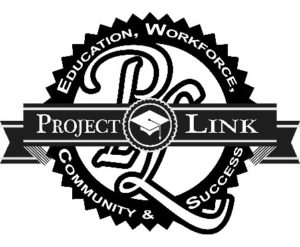 The goal of Project Link is to help students and their families chart a more assured and successful post-secondary journey. To accomplish this, Project Link participants develop personal relationships with professionals who provide intense one-on-one college, career, and financial advising and mentoring.
The goal of Project Link is to help students and their families chart a more assured and successful post-secondary journey. To accomplish this, Project Link participants develop personal relationships with professionals who provide intense one-on-one college, career, and financial advising and mentoring.
Really…who wouldn’t like having someone they can go to when they are unsure of what their next step is or when they need reassurance that they are on the right track? At both the high school and college level, Project Link provides academic and college support as well as personal and life coaching.
At the high schools, the Project Link team works to create a college-going culture by developing an environment that recognizes the value of higher education, by building awareness of post-secondary resources, and by nurturing student’s individual college and career aspirations. The participating high schools each have a dedicated space where the student can come to learn, explore, and begin to outline their own college and career path with the appropriate support and guidance to do so. Through one-on-one meetings and group sessions, the high school Liaisons help students with planning for optimum college and career readiness. They help students determine their career and college goals, think about enrichment and extracurricular engagement, figure out how to afford college and manage their money, navigate the application and registration process, prepare for SAT/ACT/TSI tests, and transition from their high school to the college of their choice. We encourage and support students as they explore and find a college that best meets their academic and career goals, and their personal needs – their true college match.
Project Link students participate in college and career nights, college application fairs, financial aid and scholarship application workshops, college tours, career days, and more. The students work on building their own educational resume by developing strong academic competencies and by participating in leadership and community service opportunities. College representatives from MCC, TSTC, and Baylor provide site visits for one-on-one advising for students who are considering attending one of these local post-secondary institutions.
Project Link is not designed to recruit specifically for MCC or TSTC, but statistically we know that many of our students for various reasons end up matriculating to one of those, so we provide additional support at those two schools.
At the college level, the Project Link Outreach Specialists provide one-on-one advising, life coaching, and other services. Students have the opportunity to participate in workshops that cover topics such as academic skills and support, careers, degrees, employability, life skills, personal wellness, computer and technology skills, and financial literacy and resources. Participants have additional opportunities to build their educational resume through community service, leadership, and internship opportunities. The goal of all of this is to help students develop the needed academic competencies, life skills, and strategies to attain their personal goals like earning their college degree, landing the job of their dreams, and achieving lifelong success.
Overall, Project Link helps to increase awareness, access and success for college readiness and retention. While building long lasting growth-oriented relationships with our students, the program allows each student to not only dream, but to make those dreams come true. At the end of the day, our program is not designed to do things for them, but instead to provide them with guidance and understanding about what steps they can make next in reaching their own dream, their own success. We can provide each of these students with all the knowledge, insight and information we have about pursuing a college or workforce degree that will land them the job of their dreams, but in the end, ultimately, we will not be the ones who will make these students successful. THEY WILL. Their persistence and hard work will be what takes them to their desired level of success. We are just serving as a beacon of light, showing them that with an advanced EDUCATION, comes great WORKFORCE and career opportunities that will lead them to be more productive members of our society and COMMUNITY. I would say that is a win, a victory, a SUCCESS for us all.
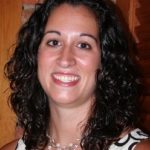 Natalie James is the Coordinator for Project Link. A native of the Waco area, she has proudly worked in Higher Education for the past 10 years at McLennan Community College. She earned her AA degree from MCC, a BSAS degree from Tarleton State University through the MCC University Center, and M.Ed. from Angelo State University. She is also a proud wife and mother to two amazing daughters. If you have questions about Project Link, feel free to contact Natalie at [email protected] or at 254-299-8517.
Natalie James is the Coordinator for Project Link. A native of the Waco area, she has proudly worked in Higher Education for the past 10 years at McLennan Community College. She earned her AA degree from MCC, a BSAS degree from Tarleton State University through the MCC University Center, and M.Ed. from Angelo State University. She is also a proud wife and mother to two amazing daughters. If you have questions about Project Link, feel free to contact Natalie at [email protected] or at 254-299-8517.
By Amy Jimenez
His smile was unlike other smiles teenagers wear. It screamed bravery and courage, masking the pain and loneliness I could clearly hear behind his words. That day, he showed up to school. We celebrated his step forward. One step toward his goal of graduating was worth celebrating. The dream of graduation is easily clouded when your report card shows half the credits you need to walk across the stage. However, this smile showed the determination of fulfilling a mother’s dream, a dream passed on to a son who painfully works through her loss every day. His smile can get lost in the labels and numbers I see in the literature, headlines, and records. Unaccompanied. Homeless. Food Insecure. At Risk. Instead, his smile should represent a dreamer—his dreams of travel, of college, of somehow experiencing hope again.
Teenagers just like this student bring me to a place of humility, of wanting more for them, and dreaming big dreams alongside them. My heart for high school kids led me to work with Waco ISD Homeless Outreach for the past two years, a phenomenal department that works with families and high school students who are homeless as defined by the McKinney-Vento Act. Unaccompanied homeless youth (UHY) are students who experience homelessness and are not in custody of a parent or legal guardian. Right away I learned about the extensive issues homeless high schools students face, including risk of dropping out, family conflict and violence, low self-esteem, sex trafficking, and other deep wounds.
- In the U.S., 1.6 million youth experience homelessness.
- 20-40% of unaccompanied homeless youth were abused sexually in their homes
- 40-60% of UHY were abused physically
- 20-40% of UHY have been thrown out of their homes because they are gay, lesbian, bisexual, transgender, or pregnant.[1]
Many of our students don’t realize they are homeless. To them, staying at a motel or sleeping on a couch or in a car is just life and they are fighting to keep up with their school work and jobs. Their stories are really tough to hear, but it’s a privilege when they bravely share them. Stories I’ve heard from our students in Waco range from unsafe living conditions, abusive relationships, couch surfing, incarcerated parents, and aging out of a life in foster care. Some students have confided being kicked out because of whom they love. The calls that really punch your gut are ones from our partners at UnBound, who prevent and intervene when girls have been trafficked. Hearing that students from Waco High and University High have been rescued from a trafficker will never get easier, but it sure ignites a desire to find ways to care for them and prevent it from happening again. These stories are also filled with winning medals at track meets, making the top 10% of their class, reuniting with mom, receiving a scholarship from Mary-Hardin Baylor, and walking across the stage at graduation. On paper, we call them “Unaccompanied Homeless Youth”. But when you get to know them, you instead begin to see them as resilient, persistent, tenacious, and brilliant.
 The Cove began as a dream of Cheryl Pooler’s six years ago after hearing the stories of homeless families in Waco ISD. With over 1,300 homeless students, Cheryl, Waco ISD’s Homeless Liaison, has meticulously fought for each student and their families to have access to resources and dignity throughout their education in Waco ISD. Cheryl and I share a soft spot in our hearts for high school students. When you have the privilege of meeting a high school student who is experiencing homelessness, you’ll never forget his or her story.
The Cove began as a dream of Cheryl Pooler’s six years ago after hearing the stories of homeless families in Waco ISD. With over 1,300 homeless students, Cheryl, Waco ISD’s Homeless Liaison, has meticulously fought for each student and their families to have access to resources and dignity throughout their education in Waco ISD. Cheryl and I share a soft spot in our hearts for high school students. When you have the privilege of meeting a high school student who is experiencing homelessness, you’ll never forget his or her story.
Cheryl has shared the vision for a safe place for students to come after school where they could feel valued, cared for, and loved. In order to prevent chronic homelessness, research points to creating an empowering space that offers not only a place to shower and do laundry before finding a temporary place to sleep, but one where students can receive counseling and medical screenings, meet with an adult who can walk through life with them, make a connection to a job training program, and involve youth in the planning and leadership. The Cove’s Student Advisory Committee is made up of both teenagers and young adults who have experienced homelessness, and their input has been invaluable as the Cove is being formed.
But today the Cove is not just a dream. It is becoming a reality. I have felt so humbled at the response from the Waco community. Waco has rallied around the issue of youth homelessness and has been welcoming and supportive of starting the Cove. The Cove is not just one organization. It’s truly a community effort to love, care for, and empower the most vulnerable youth in our city.
Hopefully to open this spring of 2016, the Cove will be an after school nurturing center for the over 60 unaccompanied homeless youth in our district. At the Cove, students will have access to tutoring, a computer lab, family style dinners, counseling services, medical screenings, haircuts, space to recharge, and maybe even play basketball. Our high school students themselves have contributed greatly to this process of developing the Cove along the way. Their insight and experience is the greatest we have to truly care for and end youth homelessness in our city.
As a local Wacoan, I am so excited for a Waco where former students from the Cove are the nurses who care for our families, the real estate agents who help purchase our houses, the head caterers at our local weddings, the teachers changing the lives of our kids, and the mayors who continue the legacy of bringing positive, collective change to the place we call home.
If you’d like to get involved, we’d love for you to join us in the adventure. Please feel free to email [email protected]. You can also visit our Facebook page or find us at www.thecovewaco.org
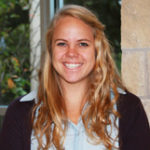 Amy Jimenez has been a Wacoan since 2009 after moving from Cincinnati, Ohio. She graduated from Baylor in 2012 with a degree in International Studies. She has interned with Waco ISD Homeless Outreach, the Cove, and also works for the Texas Hunger Initiative. She will be graduating with her Master of Social Work this May from the Diana R. Garland School of Social Work. Amy adores her best friend and husband, Blake, her dog, Marsha, and is passionate about seeking justice and loving people well here in Waco. Feel free to contact Amy at [email protected] or (254) 300-8443.
Amy Jimenez has been a Wacoan since 2009 after moving from Cincinnati, Ohio. She graduated from Baylor in 2012 with a degree in International Studies. She has interned with Waco ISD Homeless Outreach, the Cove, and also works for the Texas Hunger Initiative. She will be graduating with her Master of Social Work this May from the Diana R. Garland School of Social Work. Amy adores her best friend and husband, Blake, her dog, Marsha, and is passionate about seeking justice and loving people well here in Waco. Feel free to contact Amy at [email protected] or (254) 300-8443.
The Act Locally Waco blog publishes posts with a connection to these Aspirations for Waco. If you are interested in writing for the Act Locally Waco Blog, please email [email protected] for more information.
[1] National Association for the Education of Homeless Children and Youth. (n.d.). Unaccompanied Homeless Youth. Retrieved from www.naehcy.org/educational-resources/youth
By Donna Stauber
Waco is witness to a new era in health care. A new ministry called Faith Community Health at Baylor Scott and White-Hillcrest is helping shift the paradigm of health care by combining the caring strengths of faith communities with the clinical expertise of health care providers to improve the health of our community.
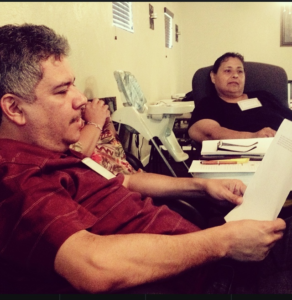 Baylor Scott and White-Hillcrest is partnering with local faith communities to provide training and support to volunteer Faith Community Caregivers to attend to their neighbors and community members during the entire span they are receiving medical care. These volunteer Faith Community Caregivers are supported through the education they receive at a 6 hour training on personal boundaries, resources, and listening skills just to list a few of the training topics. This team works closely with health care providers and other community groups to ensure people receive the care and resources they need.
Baylor Scott and White-Hillcrest is partnering with local faith communities to provide training and support to volunteer Faith Community Caregivers to attend to their neighbors and community members during the entire span they are receiving medical care. These volunteer Faith Community Caregivers are supported through the education they receive at a 6 hour training on personal boundaries, resources, and listening skills just to list a few of the training topics. This team works closely with health care providers and other community groups to ensure people receive the care and resources they need.
 Faith Community Health operates according to four principles; Right Door, Right Time, Ready to be treated and Reassured-Not Alone. It aims to help to direct people to the Right Door, or avenue of care such as seeing a primary care physician, clinic, or outpatient center in the hospital. It urges people to seek treatment at the Right Time, learning the importance of preventative care and how to recognize symptoms earlier. It also helps those needing medical treatment understand what they need and why so they can be Ready to be Treated. Finally it Reassures those facing health issues they are Not Alone. Facing illness can cause feelings of anxiety, isolation or fear. Faith Community Health not only provides support in physical healing but also the support of a calm presence during trying times.
Faith Community Health operates according to four principles; Right Door, Right Time, Ready to be treated and Reassured-Not Alone. It aims to help to direct people to the Right Door, or avenue of care such as seeing a primary care physician, clinic, or outpatient center in the hospital. It urges people to seek treatment at the Right Time, learning the importance of preventative care and how to recognize symptoms earlier. It also helps those needing medical treatment understand what they need and why so they can be Ready to be Treated. Finally it Reassures those facing health issues they are Not Alone. Facing illness can cause feelings of anxiety, isolation or fear. Faith Community Health not only provides support in physical healing but also the support of a calm presence during trying times.
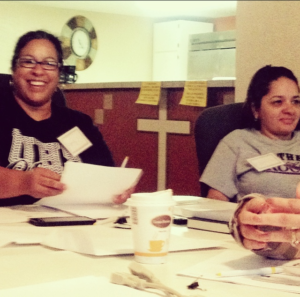 Donna Stauber, Ph.D., Program Manager, Innovations, Spiritual Care Delivery, is exploring the ways Faith Community Health can best serve the Waco area. For the past few months, Stauber has been training volunteers to be Faith Community Caregivers around the Waco area. Pictured above is the training at Family of Faith Worship Center in North Waco. For more information or how to receive training for your church, contact Dr. Stauber by email at [email protected] or by phone at 254-855-0579.
Donna Stauber, Ph.D., Program Manager, Innovations, Spiritual Care Delivery, is exploring the ways Faith Community Health can best serve the Waco area. For the past few months, Stauber has been training volunteers to be Faith Community Caregivers around the Waco area. Pictured above is the training at Family of Faith Worship Center in North Waco. For more information or how to receive training for your church, contact Dr. Stauber by email at [email protected] or by phone at 254-855-0579.
 Donna Stauber has over 25 years of experience in health education, nutrition, wellness, leadership development and motivation. Presently as Program Manager, Innovations, Spiritual Care Delivery for the Baylor S&W System, she is working at her dream job of connecting faith communities with healthcare. Donna also teaches as adjunct faculty for the department of Health and Human Services at Baylor University. She has three children and 9 grandchildren and has been married to her best friend George for 28 years and loves to fish, bird watch, float, and farm.
Donna Stauber has over 25 years of experience in health education, nutrition, wellness, leadership development and motivation. Presently as Program Manager, Innovations, Spiritual Care Delivery for the Baylor S&W System, she is working at her dream job of connecting faith communities with healthcare. Donna also teaches as adjunct faculty for the department of Health and Human Services at Baylor University. She has three children and 9 grandchildren and has been married to her best friend George for 28 years and loves to fish, bird watch, float, and farm.
The Act Locally Waco blog publishes posts with a connection to these aspirations for Waco. If you are interested in writing for the Act Locally Waco Blog, please email [email protected] for more information.
by Emily Mills
The weight of holding a story is a sacred one. Holding your own narrative, really owning your story is powerful. I learned how to own my story through an unlikely source. Commercial sex exploits, women working in the sex industry, invited me into the journey of self-discovery. Over a decade ago, I began reaching out, extending myself to women in strip clubs. Looking back, I know now why I was there. It wasn’t about saving “them”… it was about knowing myself. Through the sacred journey of holding their stories, I began to own mine.
Like many of the women I met, I too experienced childhood sexual abuse. I wasn’t sure how comfortable I was with this term. I was no victim. I was a survivor. I didn’t “need” anything from anyone. I would learn how to do life on. my. own. And this attitude is EXACTLY the story of a commercial sex exploit. What a perverted sense of pride I had found in “pulling myself up by the bootstraps”. My addiction bore the markings of religion, theirs the sex industry. What was the difference? Both of us used something to make us feel powerful. Needless to say, God has continued to save me daily through the work of Jesus Said Love, a ministry sharing the revolutionary love of Christ with women in the commercial sex industry. I have learned that I am she, and she is me…and we’re in this life together.
 Last year, we embarked on our first gala-esque fundraiser, Wild Torch. A night carrying the story of the women we reach through the visual and performing arts. It was purely magical. This year, Wild Torch will blaze on April 11, 2016, at the Hippodrome. Our concept is to swim up the river a bit and through the arts answer the question, “Where does the life of a commercial exploit begin?” And while we can’t make grand assumptions and sweeping generalizations, the statistics and data are flooring:
Last year, we embarked on our first gala-esque fundraiser, Wild Torch. A night carrying the story of the women we reach through the visual and performing arts. It was purely magical. This year, Wild Torch will blaze on April 11, 2016, at the Hippodrome. Our concept is to swim up the river a bit and through the arts answer the question, “Where does the life of a commercial exploit begin?” And while we can’t make grand assumptions and sweeping generalizations, the statistics and data are flooring:
- The average age of entry into the commercial sex industry is 12 years old for a female.
- Upwards of 80% of commercial sex exploits were sexually abused as children.
- 70% of all human trafficking victims in the US come through the commercial side.
- The number one risk factor for human trafficking is poverty.
- 89% of women in the commercial sex industry say they want out but have no other means of survival.
For more facts and information visit: http://jesussaidlove.com/freeher-facts
While the data is gut wrenching, Wild Torch will display the remarkable story of three women who have beat the odds of the industry! Through powerful dance, song and film we will share and celebrate their resiliency! The funds raised this year will go toward The Dixie Fund, a transition fund for women escaping the industry. Through this fund we not only are able to alleviate financial crises due to leaving the industry, but also empower women with funding for entrepreneurial endeavors!
Last year’s funds went to refurbishing the new JSL headquarters at 1500 Columbus. This year, funds raised for The Dixie Fund will help us transition women out of the industry through educational programs and job training, employ former exploits, and launch businesses! Come carry fire with us at Wild Torch 2016! Find out more at www.wildtorch.com.
 Emily Mills received her B. A. in Communications from Baylor University. While at Baylor, Emily participated in various opportunities to serve the marginalized and lead worship. This began her passionate pursuit to “put feet” on the songs she was singing. In 2003, while leading worship at a conference for women exiting the sex industry, these two worlds collided and Jesus Said Love was born. Emily continues to lead worship around the country with her husband, Brett. They have three children: Hattie, Lucy and Gus. To learn more about Wild Torch, visit wildtorch.com or our website JesusSaidLove.com. Contact us at [email protected].
Emily Mills received her B. A. in Communications from Baylor University. While at Baylor, Emily participated in various opportunities to serve the marginalized and lead worship. This began her passionate pursuit to “put feet” on the songs she was singing. In 2003, while leading worship at a conference for women exiting the sex industry, these two worlds collided and Jesus Said Love was born. Emily continues to lead worship around the country with her husband, Brett. They have three children: Hattie, Lucy and Gus. To learn more about Wild Torch, visit wildtorch.com or our website JesusSaidLove.com. Contact us at [email protected].
The Act Locally Waco blog publishes posts with a connection to these aspirations for Waco. If you are interested in writing for the Act Locally Waco Blog, please email [email protected] for more information.
By Saul Cornejo Bravo
“I can’t wait to get out of Waco!” Throughout my high school years, I expressed this thought often.
I have been living in Waco since I was eight years old, when my family moved here from Phoenix, Arizona. Since then, more often than not, I have viewed Waco as a boring city with not much to offer, mainly because we don’t have a Six Flags or Laser Tag arena. Now that I’ve become more involved in my community, my perspective on Waco is changing. Since starting an internship at First Friday Waco, an organization that partners with local businesses to promote downtown Waco, my hope and excitement for the future of Waco has been renewed.
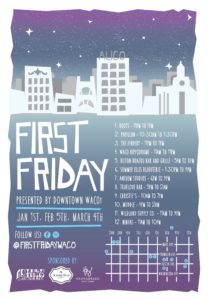 First Friday Waco was started in early 2013 by Peter Ellis when he saw the need to have a strong downtown network of local businesses supporting one another. First Friday Waco’s vision is that as downtown Waco grows it will become an inclusive hub for local business owners to support each other and make downtown a great destination for visitors and patrons. I was given the opportunity to help in Peter’s vision when I started an internship with First Friday Waco in late October. At First Friday Waco, we fulfil this vision by collaborating with businesses to create a monthly celebration to promote downtown Waco. The businesses agreed to extend their hours, offer specials, and/or hold special events every First Friday of the month, with festivities usually starting as early as 11am on Friday and going as late as 2 am Saturday morning. First Friday is a great opportunity to meet awesome local people – including artists, authors, musicians, and designers – who are enriching our local culture.
First Friday Waco was started in early 2013 by Peter Ellis when he saw the need to have a strong downtown network of local businesses supporting one another. First Friday Waco’s vision is that as downtown Waco grows it will become an inclusive hub for local business owners to support each other and make downtown a great destination for visitors and patrons. I was given the opportunity to help in Peter’s vision when I started an internship with First Friday Waco in late October. At First Friday Waco, we fulfil this vision by collaborating with businesses to create a monthly celebration to promote downtown Waco. The businesses agreed to extend their hours, offer specials, and/or hold special events every First Friday of the month, with festivities usually starting as early as 11am on Friday and going as late as 2 am Saturday morning. First Friday is a great opportunity to meet awesome local people – including artists, authors, musicians, and designers – who are enriching our local culture.
Through my work at First Friday Waco, I’ve also gotten to learn about other organizations that are working to make Waco a better place. For example, Creative Waco is an organization that supports the creative community in Waco. They recently started their #NotJustABag campaign which is raising money to make Waco a Texas Commission on the Arts designated Cultural District. Another example is this website, Act Locally Waco. The Act Locally Waco blog provides a place for individuals like me to share their thoughts. The Act Locally Waco “Twelve Aspirations for Waco” resonate with me completely and excite me about Waco’s future because they will bring the community closer together to solve issues.
So now when I think about Waco, I don’t feel disappointment that we don’t have Six Flags or Laser Tag, but rather excitement for the things to come. In my opinion, what is being done at First Friday Waco, Creative Waco, and Act Locally Waco (to name a few) is what will make our city great. The more I become involved in the city, the more I appreciate what it truly has to offer: a great community willing to make a difference. My internship with First Friday Waco will soon come to an end, but my desire to be involved in my community won’t. As I’m getting ready to leave Waco, I find myself thinking “I can’t wait to get back to my city.”
 Saul Cornejo Bravo is a student at McLennan Community College and currently interns at First Friday Waco. He is passionate about community development and plans to transfer to UT Austin and major in Economics. If you want to know about First Friday Waco’s upcoming events please visit the Facebook page: FirstFridayWaco.
Saul Cornejo Bravo is a student at McLennan Community College and currently interns at First Friday Waco. He is passionate about community development and plans to transfer to UT Austin and major in Economics. If you want to know about First Friday Waco’s upcoming events please visit the Facebook page: FirstFridayWaco.
The Act Locally Waco blog publishes posts with a connection to these Aspirations for Waco. If you are interested in writing for the Act Locally Waco Blog, please email [email protected] for more information.
(Note: This is Part 2 of a two-part series on Hospice for National Hospice Month. Here is the link to Part 1: National Hospice Month, Part 1: “I don’t want to read about dying!”)
by Tammera Ryan
“When we honestly ask ourselves which person in our lives means the most to us, we often find that it is those who, instead of giving advice, solutions, or cures, have chosen rather to share our pain and touch our wounds with a warm and tender hand.” ~ Henri Nouwen
We got to be involved with a patient that touched us. His name was Robert.
Robert had lived a rather interesting life. Throughout his 58 years, circumstances had left him homeless, living on the streets; finding his way where he could, and disconnected from his sister. Although that is important, we won’t dwell on that part of his life’s journey. Because sometimes in life, it’s not how you start, it’s how you finish.
If you read last week’s blog, you will remember that I said I would share a patient’s story. This is one that makes me proud to work for a not-for-profit hospice, specifically, Providence Hospice. Providence has never had to turn anyone away regardless of payment source. Providence Hospice offers many programs in the community: bereavement support to anyone who needs it, children’s grief programs, a specialized Veteran’s Program, a Pathways program and more.
Now, back to Robert. I mentioned that Robert’s circumstances had left him homeless. He was found by another homeless gentleman laying between two buildings. He was in obvious pain due to a terminal illness, had not been able to have a bath in weeks, had a hard time communicating, and needed help desperately. Somehow, Robert’s friend managed to get him to a local physician’s office. Fortunately, that physician contacted her friend; a Providence Hospice Social Worker. With very few questions asked, the wheels were in motion for Robert to get great care at Providence Hospice Place.
Robert was given a private room at Providence Hospice Place. He got immediate medications to help relieve his pain and received a much needed warm bath in the facility’s state-of-the art bathing system. He got undivided nurse’s attention, and received a hospice physician visit every day he was there. Perhaps just as important, that same social worker who got the call that someone needed help made sure she found him clothing, shoes, and other basic life necessities.
Now that Robert was safe and his physical pain was managed, Robert knew he needed something deeper. Robert had lost his faith. He knew he believed, but he had no way of connecting with his spirituality. With the help of the Providence Hospice Chaplain and through many heartfelt conversations and a complete bearing of his innermost thoughts, he began to reconnect and found his faith again.
After five days of care at Providence Hospice Place, it became necessary for Robert to be moved to a long-term care facility. When it came time to make that move, he was not worried about his new clothes or the few other items he had collected. The one thing he wanted more than anything was to take with him the Bible that had been laying by his bed. Of course, the staff let him take that Bible.
Robert was at peace living in the facility. He enjoyed his meals and the new friendships he made. The Hospice staff who visited him at the nursing facility always found the Bible he had taken with him right beside him every time they visited. They could tell it was being read.
A few more weeks went by and Robert grew weaker and weaker. He continued to thank the Providence Hospice team who took him in, who clothed him, who bathed him. He talked about a sister. One day the nurse sat with Robert helping him to write a letter to his sister.
A few more days went by and on a peaceful night, Robert took his last breath….a Bible laying by his bed. That Bible was given to the hospice nurse who was with him those last moments. Inside the Bible, in feeble hand-writing, was written a name and address. The nurse knew it was the sister he had talked about. The nurse was able to connect with his sister and was able to tell her of how he was at peace, of how he was well cared for during his last months, and of how well he “lived.” That same Bible where her name was written was given to Robert’s sister. She was very thankful because she had lost track of her much loved brother. Robert’s sister eventually took his ashes and had them scattered over his parents’ grave.
Volunteers are an integral part of our hospice agency’s ability to care for patients such as Robert. Medicare hospice guidelines require that at least 5% of the work that hospices provide be done by volunteers. Providence Hospice exceeds these requirements with a great group of highly trained volunteers. If you are looking for a special place to serve using your unique skills and abilities, I hope you will consider volunteer opportunities with Providence Hospice. Our Volunteer Coordinator, who has been with us for over 19 years, is dedicated to finding the right opportunity to match your talent.
His circumstances had left him lonely and disconnected. He touched us! He lived! He mattered! His name was Robert.
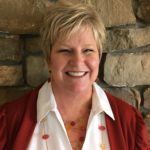 Tammera Ryan has worked with Providence Hospice for the past Thirteen years. She has held various roles within the agency including Community Liaison, Executive Director, and Director of Business Development. She has been married for 27 years. Together, she and her husband have raised their two sons and are very happy to have welcomed a daughter – in- law into their family four years ago. Her favorite quote comes from Ghandi, “Be the change you wish you see in the world.”
Tammera Ryan has worked with Providence Hospice for the past Thirteen years. She has held various roles within the agency including Community Liaison, Executive Director, and Director of Business Development. She has been married for 27 years. Together, she and her husband have raised their two sons and are very happy to have welcomed a daughter – in- law into their family four years ago. Her favorite quote comes from Ghandi, “Be the change you wish you see in the world.”
The Act Locally Waco blog publishes posts with a connection to these aspirations for Waco. If you are interested in writing for the Act Locally Waco Blog, please email [email protected] for more information.
by Florence Gassler Scattergood
Choruses love to sing. That’s why they exist. Singers enjoy the way vocal exercises soothe our being, improving our technique to enable us to express ourselves with greater beauty and ease. We are drawn to poetry in the lyrics, increasing our capacity for empathy and understanding of world around us. The freedom and joy of uniting our best voices, our best selves, with those around us who feel the same are both inspiring and exhilarating for singers of all ages.
Choral singing is a special experience which enables a group of strangers to unite with one purpose. Since talent is no respecter of socio-economic status, physical or mental capacity, or religious or political conviction, a choir is the place where all participants can be valued for their individual commitment to the collective production of beautiful music.
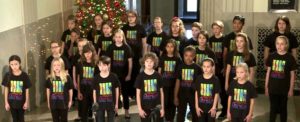 There is a unique sense of belonging and well-being that comes from singing in a choir. There is a physical sensation of connectivity in a room where all are focused on using their voices in the same way at the same time. Adding beautiful melodies, pleasing harmonies, and well-crafted lyrics to this commitment to vocal unity elevates the experience to choral artistry.
There is a unique sense of belonging and well-being that comes from singing in a choir. There is a physical sensation of connectivity in a room where all are focused on using their voices in the same way at the same time. Adding beautiful melodies, pleasing harmonies, and well-crafted lyrics to this commitment to vocal unity elevates the experience to choral artistry.
Special relationships develop within a choral setting; director with singers, singers with singers, and singers with the audience. Lifelong friendships and unexpected collaborations fuel and motivate all involved. Studies even show that those involved in choral singing early in life become significantly more active in philanthropy, civic affairs, and volunteerism as adults than the general population.
I have had the delight and pleasure of spending my professional career immersed in these experiences surrounded by singers. As a choir member and an ensemble director, I can testify that not every minute of every rehearsal generates the perfect moment of musicality or significant meaning, but the sharing of the vision and the striving toward excellence always propels us as we move toward our goal of becoming musically literate vocal artists. The process is the daily bread which feeds my soul. To my delight it is also feeding the souls of those who are eavesdropping.
This fall a unique partnership began between the Youth Chorus of Central Texas and Stilwell Retirement Residence. With the gracious hospitality of Joel Wright, the Executive Director of Stilwell Retirement Residence, and the generous support of the Stilwell staff, fifty young choristers from roughly 20 schools are welcomed every Monday afternoon to their fine facility for weekly practice. It is also when and where we build commUNITY.
Singers and their parents from all over the city converge on Stilwell for rehearsal and are greeted by new friends. When I enter the building, the room is set up and ready for our lively singers who range in age from third through tenth grade. Our Baylor and WISD interns arrive early to prep for the singers as does our pianist. Stilwell staff are ready to help with our logistical and clerical needs.
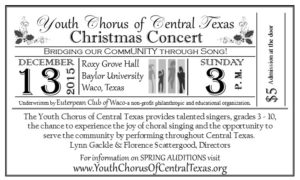 We rehearse adjacent to the dining room and residents regularly peek in to see and hear us. Sometimes we venture into the dining room and sing newly polished songs. The ladies and gentlemen are a gracious and supportive audience. They tell us stories of their personal musical adventures and encourage and compliment our efforts. We have shared Halloween goodies with them and are sure Christmas will include some sort of celebration as well. Several YCCT members and parents have made inquiries as to volunteer opportunities with our new friends. This is a delightful development.
We rehearse adjacent to the dining room and residents regularly peek in to see and hear us. Sometimes we venture into the dining room and sing newly polished songs. The ladies and gentlemen are a gracious and supportive audience. They tell us stories of their personal musical adventures and encourage and compliment our efforts. We have shared Halloween goodies with them and are sure Christmas will include some sort of celebration as well. Several YCCT members and parents have made inquiries as to volunteer opportunities with our new friends. This is a delightful development.
We arrived at this partnership out of necessity. The YCCT is a community chorus; we are not affiliated with any particular school, church, or major institution. We do not have a permanent home. It is important for us to have a central location which is welcoming to our culturally diverse membership. The Stilwell family has welcomed us with open arms and the YCCT families enjoy coming to Stilwell. Our parents can wait for their children on site or visit the public library or do some shopping nearby.
We entered into this partnership for the purpose of having a rehearsal space and have actually found a home, complete with enthusiastic and nurturing eavesdroppers who share our joy and passion for feeding souls through song.
Since 2013, YCCT has served over 100 singers from approximately 25 schools providing music for the PACK of HOPE, Meals and Wheels, Waco Cultural Arts Festival, and the Interfaith Holocaust Remembrance Service. The choir received the 2014 Model of Unity Award from the Community Race Relations Coalition of Waco. Please visit www.youthchorusofcentraltexas.org for information on SPRING AUDITIONS.
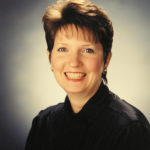 Florence Gassler Scattergood and her husband Bob live in her childhood home with their cat Cougar. She is currently an adjunct lecturer at Baylor University and is co-founder/director of the Youth Chorus of Central Texas with Lynne Gackle. Florence enjoys reading, cooking, traveling, and socializing with the neighbors. For her professional bio visit www.youthchorusofcentraltexas.org.
Florence Gassler Scattergood and her husband Bob live in her childhood home with their cat Cougar. She is currently an adjunct lecturer at Baylor University and is co-founder/director of the Youth Chorus of Central Texas with Lynne Gackle. Florence enjoys reading, cooking, traveling, and socializing with the neighbors. For her professional bio visit www.youthchorusofcentraltexas.org.
The Act Locally Waco blog publishes posts with a connection to these aspirations for Waco. If you are interested in writing for the Act Locally Waco Blog, please email [email protected] for more information.
